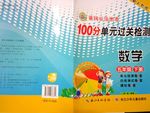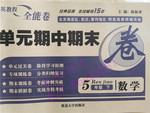题目内容
When Toyota’s president, Akio Toyoda, apologized for the recalls that have harmed Toyota’s reputation, he talked not just about his company’s fate, but also his nation’s.
“I hope to return Toyota to profit and contribute to the revitalization of Japan,” he said.
Once a leading symbol of Japan’s rise to global economic might, Toyota has become one of the most obvious signs of its decline. And even before the recalls, Japan’s rivals(竞争对手) from South Korea and China had started overtaking Japan in key industries from semi-conductors to flat-panel televisions. And Toyota on Tuesday issued another damaging recall, this time of its popular Prius car.
“At this rate, Japan will sink into the sea,” said Masatomo Tanaka, a professor at the Institute of Technologists. “If Toyota is not healthy, then Japan is not healthy.”
Many economists and business leaders say they hope that Toyota’s trouble will be the wake – up call that Japan needs to understand that its reliance on manufacturing(制造业) and industrial exports, which served the country so well after World War II, is no longer wise.
Yukio Noguchi, a professor of finance at Waseda University in Tokyo, said Japan must finally step into a post - industrial, service-based economy — a painful shift that the United States and Great Britain underwent in the 1980s. Others said Japan should focus on high-end, high-profit products, like robots and fuel cells, rather than mass-produced goods subject to quality-control issues.
“Even Toyota can fail. Even Lexus, even Prius,” said Mr. Noguchi. “Our world-leading manufacturing industry may no longer world-leading. This has a strong impact on the national psyche.”
According to the Cabinet Office, manufacturing accounted for 22% of Japan’s entire economic output in 2008, down from 28% in 1990. however, manufacturing’s share of the economy still remains far above the level of 12% in the US. And few economists or journalists here advocate abrupt shifting. Rather, the feeling is that Japan needs to find a new balance by replacing its traditional industries with more information technology and software industries in which it is weak.
Yet this shift will be hard for Japan, where many policy makers and experts still seem to cling to the old model of heavy industries and consumer goods. If Japan can pull it off, it could serve as a model for other export – dependent Asian nations, which will also eventually face the same choice.
“I hope that Toyota will change our way of looking at our economy,” Mr Noguchi said. “We cannot survive if we continue to stick to the old type of industries.”
67.Since the Second World War, have been contributing much to Japan’s economy.
A.high – end and high – profit products like robots and fuel cells
B.manufacturing and industrial exports
C.information technology and software industries
D.industries from semi – conductors to panel – televisions
68.Which of the following statements is TRUE according to the passage above?
A.Few Japanese economists advocate a rapid shift into a service – based economy.
B.Most journalists in Japan advocate an abrupt change into a post – industrial economy.
C.Many economists hold that it is too early for Japan to shift into a service – based economy.
D.No Japanese reporters think it high time for Japan to step into a post – industrial economy.
69.The underlined part “cling to” probably means in the passage.
A.hold on to B.keep up with C.turn to D.pick up
70.From the passage we know the way out for Japan to get itself free from its decline consists in
.
A.keeping up its reliance on manufacturing
B.continuing to focus on its industrial export
C.speeding up its shift into a post – industrial economy
D.increasing its manufacturing
67---71 BAAC

 智慧课堂密卷100分单元过关检测系列答案
智慧课堂密卷100分单元过关检测系列答案 单元期中期末卷系列答案
单元期中期末卷系列答案
| |||||||||||||||||||||||||||||||||||||||||||||||||||||||||||